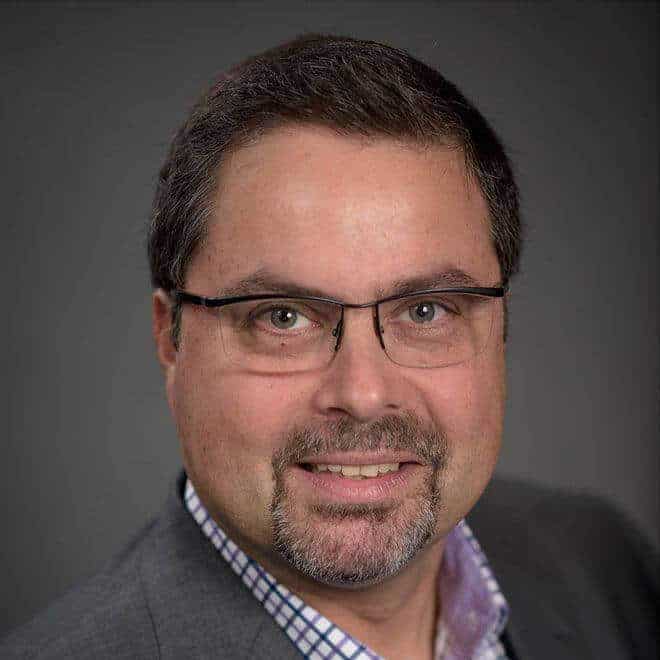The Business of Meetings – Episode 158 – Intentional Growth with Ryan Tansom
Today, we have the great pleasure of speaking with Ryan Tansom, the Co-founder of Arkona!
Ryan knows a lot about acquisition entrepreneurship! He joins us to share his insight along with a wealth of experience building and selling businesses. He dives into how to create value, different types of exits, and everything else you need to know when planning to sell a business.
Bio
Ryan Tansom started his entrepreneurial career at his family business where he was the executive vice -president and responsible for the strategic, operational, and financial strategy of a $21 million company. Ryan helped turn the company around and bring intentional focus to the right strategies, which enabled it to be sold for eight figures to a local competitor in 2014.
Ryan took his experience and founded Arkona to create the Intentional Growth Framework, which helps owners grow the value of their company with the end in mind, through educational training, fractional CFO services, and strategic planning.
Ryan is a passionate, energetic, and highly-skilled communicator who loves his work and the message he delivers. Both of the keynote presentations he frequently delivers are near and dear to his heart because they tell the story and solutions to the challenges he had when he was running his family business. Since founding Arkona, he has been able to teach other entrepreneurs and business owners what he wishes he had known before they sold their company, which was how to clarify a path to a more valuable business with an end in mind. He wants business owners to turn their visions into reality.
Ryan also hosts the popular Intentional Growth Podcast, which has 280+ episodes and 380k+ downloads, with Todd Herman, Bo Burlingham, Jack Stack, Gino Wickman, John Warrillow, Dan Martell, and Alan Beaulieu.
Ryan’s journey
Ryan is on a mission to make the entrepreneurial journey worthwhile for everyone. Through Arkona, he offers education and services to help people with their businesses and business finances.
It all stems from Ryan’s experience growing up in a business his dad started from the ground up. At the end of 2009, their family business lost $940,000.00 and they had to choose between doubling down to make it worthwhile keeping or selling the business and shutting it down entirely. They decided to keep going. Over the next five years, they sold two branches, built out the managed IT services and software automation, rolled out a new ERP (Enterprise Resource Planning) system, replaced most of their employees, and rebranded while juggling a $240,000 payroll every two weeks. In 2014, they sold the business because they could not align their goals and strategies.
What do you want?
When people call Ryan to say they want out of their business, he asks them whether they want out of their job or assets. Mostly, they are sick of all the duties associated with their role in the business.
Reverse engineering an equity valuation
Many entrepreneurs don’t even know if what they are doing is worth it, and their goals are often based on revenue, which is not a good indicator of whether or not they have made it. Ryan likes to ask entrepreneurs what target equity value they want for their business at a point in time, regardless of whether or not they want to sell. (If a company is viewed and run like a financial asset, it needs to grow in value!)
What business owners need to have in place and do:
- A dashboard to monitor their numbers
- A goal
- Hire people and delegate
- Make it unnecessary to be in the business themselves
Ryan’s 5 Intentional Growth Principles
Ryan has adopted five principles to bring clarity to business owners and crystalize and synthesize the questions they often ask:
- Your vision; What do you want from the business, and why?
- Your financial targets (target annual income, asset net worth, and the equity value of the company)
- Exit Options (Internal – Management/Family/Partners, Acquisition Entrepreneurs ESAPs, Private Equity, Strategic Buyers)
- Creating sustainable, predictable, and transferable cash flow (The more sustainable, predictable, and transferable the cash flow, the more intrinsic value the business will have.)
- Team of advisors (Hire experts to advise you on optimizing all aspects of the business.)
The best outcome
When most business owners consider the best outcome, they tend to gravitate toward a number. A better option would be to focus on growing the intrinsic financial value based on the cash flow valuation because that will likely guarantee five multiples within the ESOP. (Employee Stock Ownership Plan)
The benefits of ESOP
If you’re in an ESOP and sell your company, you can put up to 15% of the rolled equity back into your company. You also get to be a paid CEO, make all the decisions, and do not pay taxes.
What is happening in the market?
Private equity raised almost a trillion-and-a-half dollars in capital, they are charging investors 2% to manage that money, and they have not yet bought anything.
Enterprise-purchasing power
The US technically has 8 million dollars of enterprise purchasing power to buy companies that comprise only 4% of the market. That creates a problem for those who want to sell and for those who have invested in private equity. So private equity companies are now readjusting all their models. Prices will drop, and people will get higher earn-outs, more equity, and less debt.
A great opportunity
A great opportunity exists for people to buy companies, grow value, and monetize when they want to exit.
Connect with Eric
On LinkedIn
On Facebook
On Instagram
On Website
Connect with Ryan Tansom
On LinkedIn

